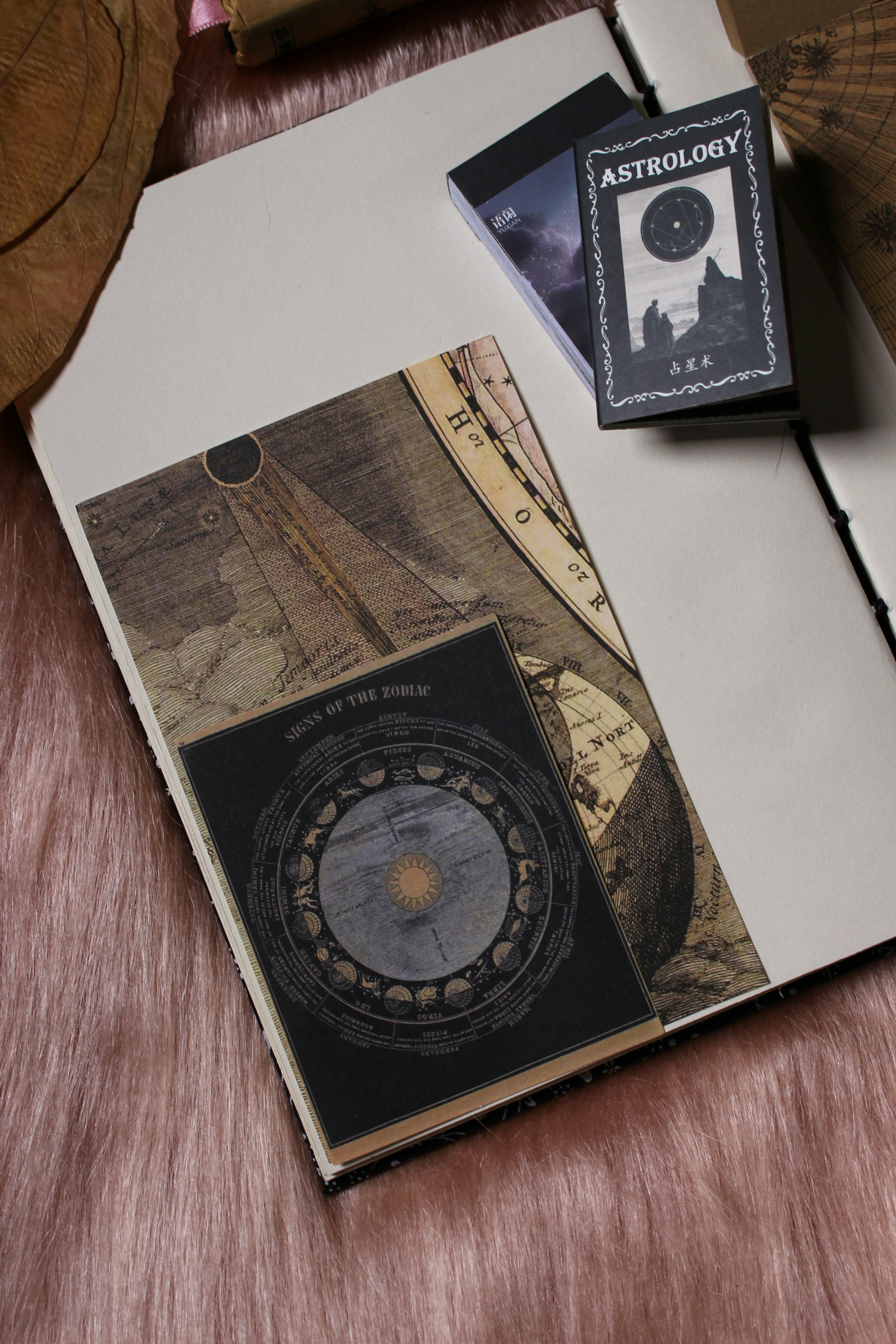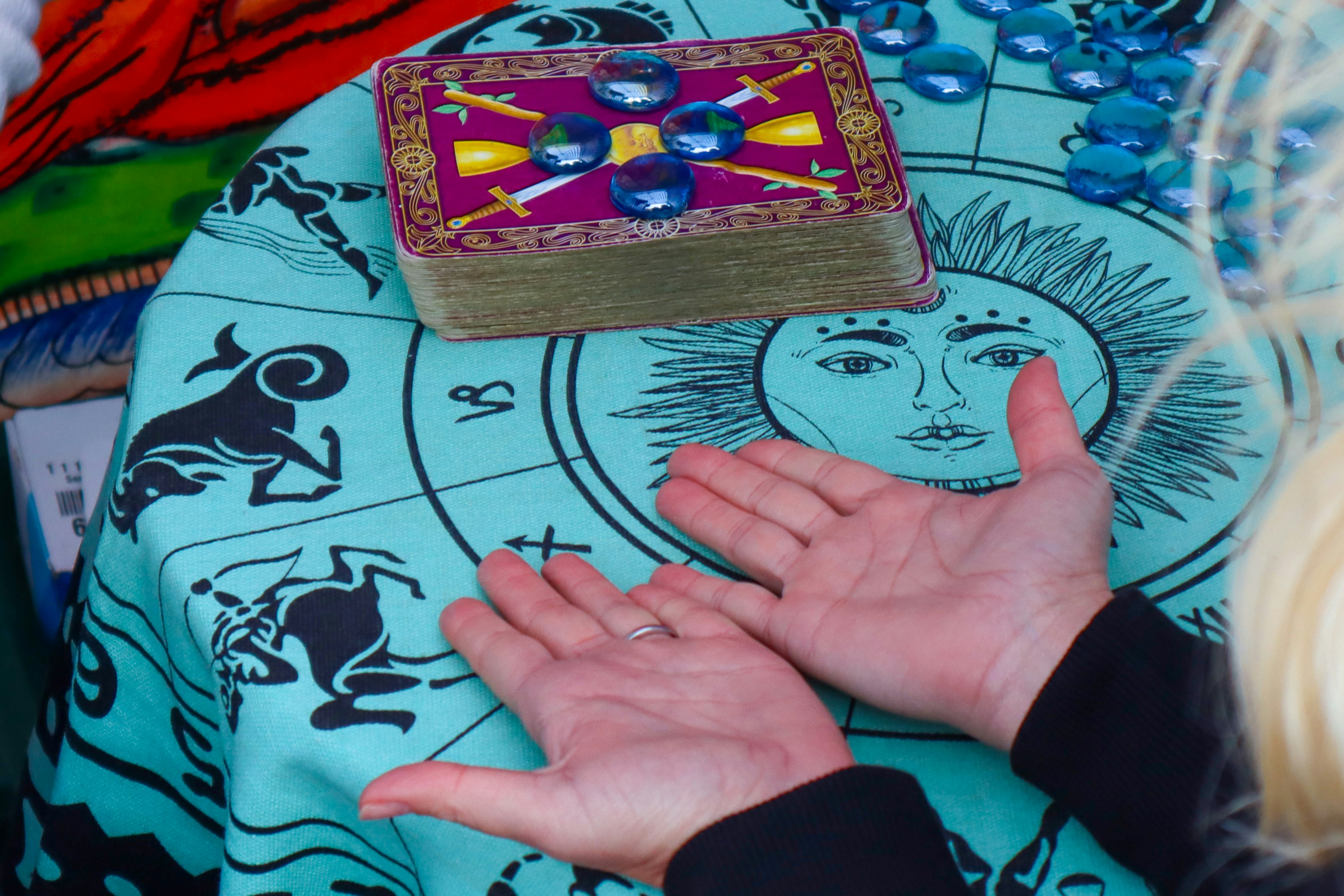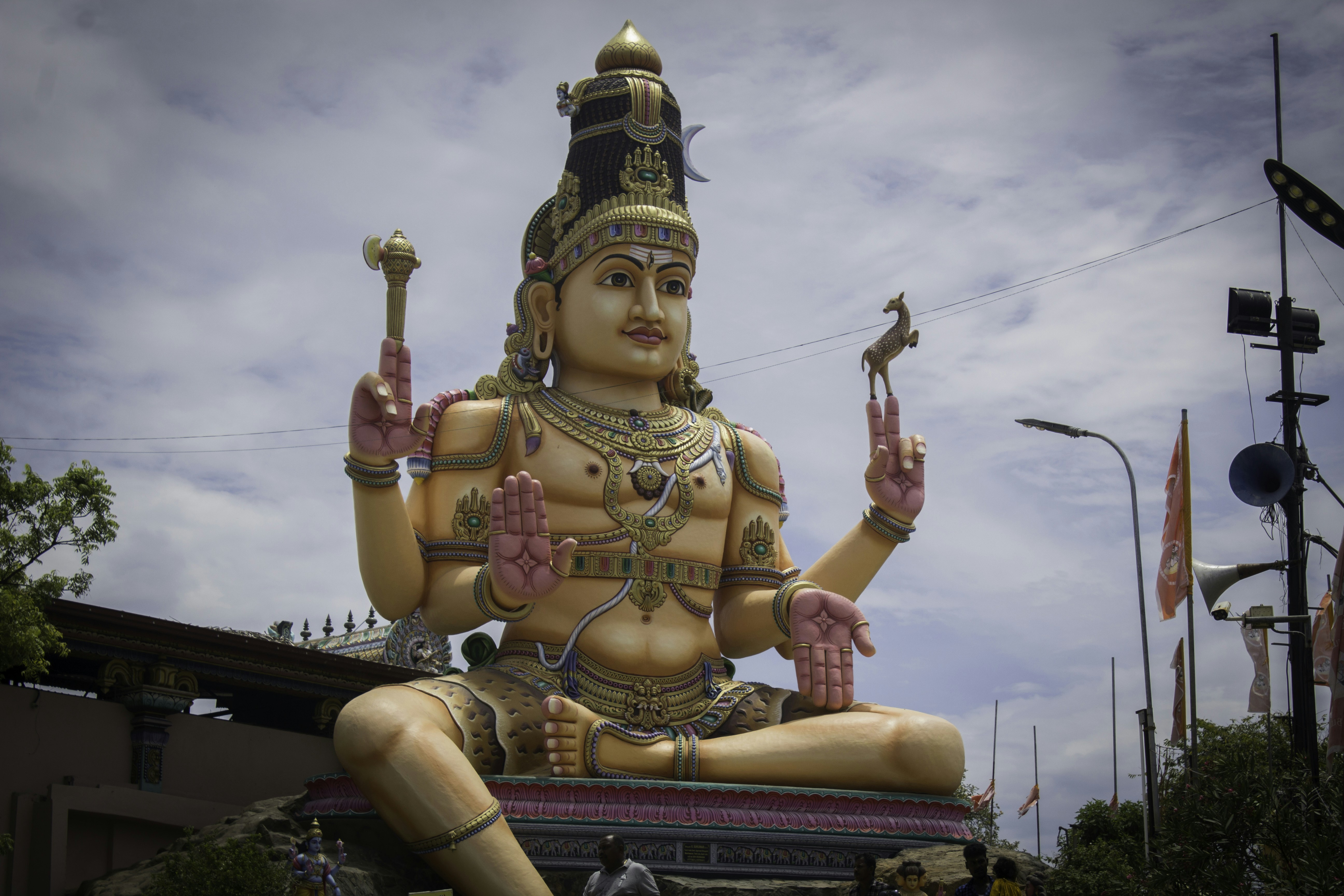
Introduction to Nakshatras
Nakshatras, an essential aspect of Vedic astrology, are lunar constellations that play a significant role in astrological predictions and analysis. The lunar zodiac system comprises 27 nakshatras, each representing a specific segment of the celestial sphere, effectively dividing the zodiac into smaller, precise portions. Each nakshatra is associated with particular qualities, deities, and ruling planets. Their influence extends beyond mere personality traits; they significantly impact various aspects of life, including marriage, profession, and overall destiny.
In Vedic tradition, the nakshatra in which an individual is born forms a crucial part of their astrological chart. This position provides valuable insights into their character, strengths, weaknesses, and life path. When exploring the influence of nakshatras on marriage, it becomes essential to understand their compatibility aspects. Selecting a partner whose nakshatra harmonizes with one’s own can enhance the chances of a successful marital union.
The significance of nakshatras is further amplified when considering their connection to the Moon. In Vedic astrology, the Moon’s placement in one of the 27 nakshatras at the time of birth can greatly determine an individual’s emotional disposition and relational dynamics. This lunar influence highlights how emotional compatibility—depicted through nakshatras—can be just as important as other astrological factors when evaluating potential marriage partners.
In summary, understanding nakshatras offers profound insights into personal and relational attributes. The interplay between the lunar constellations and individual life paths makes them a focal point for astrologers, especially when it comes to significant life events such as marriage. Exploring these celestial influences provides valuable guidance for those seeking harmony and fulfillment in their marital relationships.
The Importance of Nakshatras in Marriage
Nakshatras, an integral component of Vedic astrology, play a significant role in determining the compatibility of partners in marriage. Each nakshatra is associated with specific characteristics, qualities, and personality traits that can affect the dynamics of a marital relationship. Thus, understanding these celestial influences is essential for ensuring a harmonious union.
The traditional practice of ‘Guna Milan,’ or the matching of traits based on nakshatras, serves as a fundamental criterion during the marriage arrangement process. Guna Milan involves assessing various aspects such as the personalities, lifestyles, and overall compatibility of the prospective partners, derived from their respective nakshatras. This practice endeavors to establish a solid foundation for the married couple, minimizing potential conflicts and enhancing mutual understanding.
Selecting an auspicious nakshatra for marriage is believed to be vital for promoting a fulfilling and peaceful married life. The alignment of the groom’s and bride’s nakshatras can greatly influence their emotional and spiritual connection, helping to foster love, respect, and a sense of harmony. Many families consult astrologers to analyze the nakshatras of the individuals involved, prioritizing those that resonate positively with each other, as this practice is thought to contribute to a successful partnership.
Moreover, traditional beliefs suggest that specific nakshatras are considered more favorable for marriage due to their auspicious characteristics. Couples aiming for a prosperous future tend to gravitate toward these alignments, reinforcing their commitment to aligning both their personal values and astrological compatibilities. In this regard, nakshatras remain a powerful tool for both individuals and families, emphasizing the significance of astrological considerations in marital unions.
Criteria for Determining Auspiciousness
In Vedic astrology, determining auspicious nakshatras for marriage involves a multifaceted approach, integrating several key criteria that evaluate the potential success of a union. One crucial factor is the planetary influences aligned with each nakshatra. Each nakshatra is governed by a specific planet, which bestows distinct characteristics and influences on individuals born under its realm. For instance, certain planets such as Venus, Jupiter, and the Moon are considered highly favorable, as they represent harmony, love, and emotional stability, all essential for a fruitful marital relationship.
Another significant criterion is the inherent qualities of each nakshatra. Vedic astrology categorizes nakshatras based on traits such as emotional compatibility, communication styles, and behavioral tendencies. These characteristics can be analyzed to determine how well partners may complement or conflict with one another. The examination of these qualities helps in forecasting relationship dynamics that might arise from the alignment of the partners’ natal charts.
Additionally, each nakshatra has associated doshas, or afflictions, that astrologers take into account. Doshas can indicate various issues that may arise in marriage, such as lack of compatibility, emotional challenges, or conflict-driven tendencies. For example, some nakshatras may exhibit a tendency to create tension or misunderstandings between partners. Understanding these doshas allows astrologers to get a more nuanced perspective on which nakshatras might present challenges or, alternatively, reaffirm the strength of a marital bond.
Through this comprehensive framework, astrologers are equipped to evaluate the auspiciousness of nakshatras specifically concerning marital success, combining the influence of planetary alignments, inherent characteristics, and dosha associations for precise insights.
The Top 10 Auspicious Nakshatras for Marriage
In Vedic astrology, nakshatras, or lunar mansions, play a significant role in determining not only personal traits but also compatibility in marriage. The following ten nakshatras are recognized as particularly auspicious for marital unions, embodying qualities that foster harmonious relationships.
1. Rohini: This nakshatra is ruled by the Moon and symbolizes beauty, fertility, and abundance. Individuals born under Rohini tend to be nurturing and emotionally balanced, making them excellent partners. Their inherent charm attracts affection and admiration, facilitating lasting marriages.
2. Pushya: Under the rule of Saturn, Pushya is associated with nourishment and growth. Those influenced by this nakshatra exhibit responsibility and stability in relationships. Their caring nature ensures they provide emotional support, an essential aspect of marital success.
3. Magha: Regarded as a royal nakshatra ruled by Ketu, Magha represents authority and pride. People born in this nakshatra often possess strong leadership qualities, which can create a powerful dynamic in relationships, paving the way for a respectful and prosperous married life.
4. Swati: Governed by Rahu, Swati is synonymous with independence and adaptability. Individuals with this nakshatra are known for their diplomacy and gentle nature, which aids in overcoming conflicts in marriage, promoting a harmonious partnership.
5. Hasta: Ruled by the Moon, Hasta promotes wisdom and dexterity. Those born under this nakshatra tend to approach life with practicality, aiding in effective communication and understanding between partners, essential for sustaining a healthy marriage.
6. Shravana: Governed by the Moon, Shravana symbolizes listening and learning. Partners under this nakshatra often exhibit strong emotional intelligence, fostering empathy and connection, crucial for the success of any matrimonial bond.
7. Dhanishta: With Mars as its ruler, Dhanishta embodies rhythm and prosperity. Individuals influenced by this nakshatra often radiate positivity and vitality, attracting happiness and abundance into their married lives.
8. Shatabhisha: This nakshatra, ruled by Rahu, signifies healing and transformation. It inspires the pursuit of truth and justice, encouraging partners to work through challenges together, hence strengthening their marriage.
9. Ashwini: Ruled by Ketu, Ashwini is associated with new beginnings and energetic pursuits. Individuals born under this nakshatra often exude vitality, making their married life vibrant and filled with adventure.
10. Uttara Bhadrapada: Governed by Jupiter, this nakshatra embodies compassion and knowledge. Those influenced by Uttara Bhadrapada often prioritize education and growth within relationships, leading to intellectually stimulating marriages that stand the test of time.
These ten nakshatras carry significant influence over marital bliss. Understanding their characteristics can help individuals navigate their relationships effectively, ensuring a nurturing environment where love and companionship can flourish.
Auspicious Nakshatras: A Detailed Analysis
In Vedic astrology, each nakshatra holds unique attributes that influence various aspects of life, particularly in the context of marriage. This section provides a comprehensive analysis of the ten most auspicious nakshatras for marriage, highlighting their symbolism, strengths, relationship challenges, and compatibility with other nakshatras.
The first nakshatra, Ashwini, is associated with healing and new beginnings. Individuals born under this nakshatra are often adventurous and enthusiastic, which can make for an exciting marriage. However, they may struggle with commitment due to their independent nature. Compatibility with Bharani and Krittika nakshatras amplifies their potential for a harmonious relationship.
Bharani is symbolized by the yoni, representing femininity, creation, and fertility. This nakshatra often bestows individuals with strong emotional intelligence. However, their tendency to be possessive can lead to challenges. They relate harmoniously with Ashwini and Rohini due to shared emotional depths.
Next, we have Krittika, symbolized by the flame. Individuals here are known for their strong will and fiery nature. Their confidence can be a strength in marriage but may also translate into stubbornness. They find compatibility with Ashwini and Uttara Phalguni, creating a balanced relationship dynamic.
Rohini, the fourth nakshatra, is linked with creativity and beauty. Individuals born under Rohini are often nurturing partners, but they may also become overly attached. Their best compatibility exists with the nakshatras of Krittika and Mrigashira, enhancing their marital prospects.
Mrigashira, symbolized by the deer, represents exploration and change. While this nakshatra encourages discovery, individuals may encounter challenges in commitment. They can foster strong connections with Rohini and Ardra nakshatras, promoting deeper understanding.
Ardra corresponds with transformation and challenges. Although individuals here may face emotional turmoil, their resilience fosters growth in marriage. They are most compatible with Punarvasu and Mrigashira, extending their ability to navigate relationship difficulties.
Punarvasu, symbolized by the bow, is known for its capacity for recovery and adaptability. Their strengths lie in their nurturing qualities; however, they may sometimes struggle with indecision. Compatible pairs are with Ardra and Pushya, improving their prospects for marital bliss.
Pushya represents nourishment and nurturing. Individuals born under this nakshatra are highly supportive partners but might exhibit overprotectiveness, which can be overwhelming. They align well with Punarvasu and Ashlesha, fostering stability.
Lastly, Ashlesha symbolically connects to the serpent and intuition. Their perception and susceptibility can enrich relationships, though overthinking may pose challenges. Best compatibility often lies with Magha and Sravana, promoting greater understanding.
Each nakshatra displays unique characteristics that significantly impact marital dynamics. By understanding these nuances, individuals may navigate their relationships more effectively, fostering harmony and fulfillment in their shared lives.
Astrological Remedies for Unfavorable Nakshatras
Individuals born under nakshatras that are traditionally considered unfavorable for marriage may find themselves facing unique challenges in their marital relationships. However, astrology offers a variety of remedies that can help mitigate these negative influences and promote compatibility. These remedies often include rituals, gemstone recommendations, and lifestyle adjustments that aim to enhance harmony in one’s personal life.
Rituals play a significant role in addressing the adverse effects of unfavorable nakshatras. Engaging in regular prayers or homas (fire rituals) specific to one’s nakshatra can help alleviate karmic issues. It is advisable to consult an experienced astrologer to ensure that the rituals undertaken are correctly tailored to one’s unique astrological profile. These rituals often involve invoking particular deities associated with one’s nakshatra, providing spiritual support and guidance.
Additionally, wearing the right gemstones can be instrumental in counteracting the negative energies associated with certain nakshatras. Each nakshatra is linked to specific gemstones, which are believed to enhance positive influences and diminish detrimental ones. For instance, those born under certain nakshatras may benefit from wearing gemstones like blue sapphire, emerald, or coral, depending on their astrological chart. It is crucial to have gemstones prescribed by a professional, as incorrect usage may lead to unintended consequences.
Furthermore, lifestyle changes can contribute greatly to balancing the unfavorable traits associated with certain nakshatras. Couples are often encouraged to cultivate patience, understanding, and open communication within their relationships. Engaging in meditation or yoga not only benefits mental well-being but also promotes harmony and unity between partners. By fostering a nurturing environment at home and prioritizing quality time spent together, couples can enhance their marital compatibility, regardless of the initial challenges posed by their nakshatras.
In conclusion, taking proactive steps through astrological remedies can create a positive impact for individuals born under unfavorable nakshatras. By focusing on rituals, gemstone usage, and meaningful lifestyle changes, couples can cultivate greater harmony and strengthen their marital bond.
Real-Life Stories and Experiences
Many couples attest to the significance of nakshatras in shaping their marital life. One such example is the union of Priya and Arun, who were married under the auspicious nakshatra of Rohini. Both individuals shared a deep respect for tradition, and their families emphasized the importance of marrying within favorable nakshatras. Their bond flourished under the energy represented by Rohini, known for its nurturing and caring qualities. This nurturing aspect contributed to their ability to communicate openly and make sacrifices for one another. Over the years, Priya and Arun have often credited their harmonious relationship to the blessings of their nakshatras, stating that understanding and compatibility flowed naturally from their celestial alignments.
Another inspiring story is that of Maya and Suresh, who tied the knot during the favorable period of Magha nakshatra. The couple reported experiencing remarkable companionship and support throughout their marriage. Friends and family observed how the leadership traits associated with Magha manifested in both Maya and Suresh, empowering them to take decisions that benefited their relationship and family. They shared that their confidence and joint decision-making have been pivotal during challenges, helping them emerge stronger and more connected. This couple’s experience illustrates the positive influence that an aligned nakshatra can have on fostering teamwork and resilience in a marriage.
Lastly, consider the story of Tara and Vikram, married during the auspicious Ashwini nakshatra. This couple consistently highlights the attribute of excitement and adventure that characterizes their relationship. They noted that their shared interests and eagerness to explore life together were amplified during their marriage, allowing them to celebrate various milestones with enthusiasm. Tara and Vikram believe that the invigorating energy from Ashwini contributes to their ability to find joy in life’s experiences. These anecdotes reveal how the blessings of an auspicious nakshatra can manifest in diverse, yet profound ways, enhancing the marital journey.
Expert Opinions from Astrologers
Astrologers play a pivotal role in understanding the significance of nakshatras in the context of marriage. They emphasize that nakshatras are not merely astrological markers but are deeply woven into the fabric of compatibility assessments between prospective partners. According to several professional astrologers, each nakshatra embodies unique characteristics and influences that can profoundly affect marital harmony and relationship dynamics.
Astrologers typically analyze both partners’ moons and their respective nakshatras to ascertain compatibility. The alignment of these astral bodies can provide insights into emotional affinities, behavioral patterns, and potential areas of conflict that may arise in the marriage. For instance, certain nakshatras are believed to foster greater empathy and communication, while others may indicate challenges that require conscious effort to overcome.
Moreover, many astrologers highlight the contemporary relevance of auspicious nakshatras in marital decisions. In an increasingly modernized society, couples often seek not only traditional wisdom but also actionable insights that can guide their journey together. They advise that when selecting a wedding date, it is essential to consider the auspiciousness of the nakshatra throughout the planned period, as this can significantly influence the overall success of the marriage.
Many professionals suggest that while nakshatras provide valuable guidance, they should not solely determine marital choices. Balancing traditional beliefs with personal values and mutual understanding between partners is equally essential. Astrologers affirm that harmonious nakshatras can facilitate a smoother relationship journey; however, open communication and shared goals remain foundational for a successful and lasting marriage.
Conclusion and Final Thoughts
In conclusion, the significance of nakshatras in the context of marriage cannot be overstated. Throughout this discussion, we have explored the ten most auspicious nakshatras that are believed to enhance marital bliss and compatibility. Each nakshatra carries unique attributes that can influence the couple’s relationship, making the selection of a suitable nakshatra a vital aspect of matrimonial planning. From fostering emotional harmony to encouraging mutual growth, the right nakshatra can provide a robust framework for a successful marriage.
Understanding the role of nakshatras in marital compatibility can help couples make informed decisions that align with their astrological profiles. It is essential for individuals to consider both the characteristics of their own nakshatras and those of their prospective partners when planning a wedding. The insights gained from this astrological perspective can play a crucial role in ensuring lasting happiness and fulfillment in married life.
Moreover, seeking astrological guidance can provide deeper insights into the compatibility and potential challenges within a relationship. It is advisable for individuals to explore their own nakshatras, as well as those of their partners, to gain a comprehensive understanding of the cosmic influences at play. This exploration can empower couples to navigate their marital journey with a sense of confidence and clarity.
As you contemplate your marriage, we encourage you to delve into the astrological significance of nakshatras. Consider consulting with an astrologer who can provide personalized insights tailored to your unique circumstances. By doing so, you not only honor the tradition of astrology but also pave the way for a harmonious and prosperous marital life.






